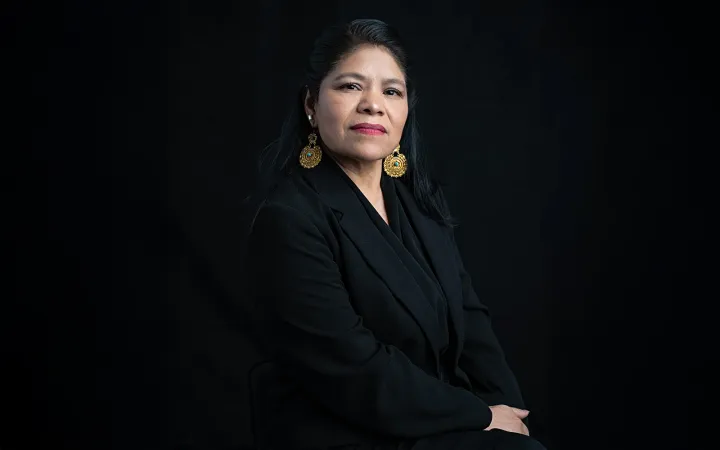Por Marcelina Bautista Bautista
En este artículo les quiero hablar de mi experiencia en el proceso organizativo que me llevó al gran compromiso que tomé desde que supe que podía hacer algo por mis compañeras en el trabajo del hogar que no solo ha sido defender sus derechos laborales sino en algunos casos hasta su dignidad.
Todo comenzó cuando tenía 14 años y entré a una casa ajena para limpiar y cuidar a cambio de un pago, recuerdo el primer día que la señora Olga me dijo: “Aquí vas a estar bien, si quieres ir con tus tías los domingos está bien, si no después del desayuno nada más limpias la cocina, recoges las camas, saca a Yudi y te vas a tu cuarto a descansar”. Yo lo que quería era estar con mis tías y primos.
Me preguntaba si era el trabajo que quería hacer toda la vida, pero también pensaba que con eso no lograría superarme, quería ir a la escuela, pero no sabía hablar español y me daba miedo. Al mismo tiempo percibía una sociedad que no valoraba nuestra actividad, pues el trabajo en el hogar era ampliamente desvalorizado y considerado una extensión “natural” de las labores femeninas.
Para la sociedad este trabajo era invisible y de menor importancia, asociado principalmente a las mujeres, especialmente a las de bajos recursos y a las personas racializadas. Era común que las trabajadoras del hogar fuéramos vistas más como “ayudantes” que como trabajadoras con derechos.
Además, el trabajo del hogar se realizaba en condiciones de explotación, con jornadas extenuantes, salarios muy bajos o incluso en forma de pago en especie. Había más trabajadoras que vivíamos en las casas donde laborábamos, lo que dificultaba aún más la separación entre nuestra vida personal y laboral. También existía una relación paternalista por parte de los empleadores, quienes justificaban la falta de derechos laborales con la idea de brindarnos “protección” o “cuidado” a las trabajadoras.
Toma de conciencia desde mi realidad.
En el andar tuve una formación clave en la Juventud Obrera Cristiana (JOC), un movimiento internacional que promovía la organización y formación de jóvenes trabajadores desde una perspectiva de justicia social y en mi inicio fue la respuesta a mi inquietud sobre mi trabajo y su valor.
Cuando llegué a la Ciudad de México como trabajadora del hogar, encontré en la JOC un espacio donde pude reflexionar sobre mi realidad laboral y la de mis compañeras. Ahí, recibí formación en derechos laborales y en organización comunitaria, lo que me permitió comprender que mi situación no era individual, sino parte de una problemática estructural que afectaba a miles de trabajadoras del hogar en México.
La JOC fue fundamental en mi proceso de toma de conciencia y liderazgo. A través de la metodología del “ver, juzgar y actuar”, aprendí a analizar las condiciones de trabajo del sector, identificar las injusticias y tomar acción para transformarlas. Fue en este contexto donde empecé a organizarme con otras trabajadoras del hogar, sembrando las bases de lo que más tarde sería esta lucha en el sindicalismo y la creación del Centro Nacional para la Capacitación Profesional y Liderazgo de las Trabajadoras del Hogar A.C (CACEH).
Encuentro con otras trabajadoras del hogar para compartir nuestras experiencias y realidades.
Suscríbete para leer la columna completa…

